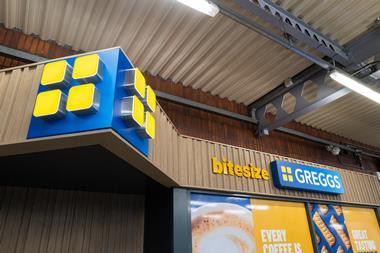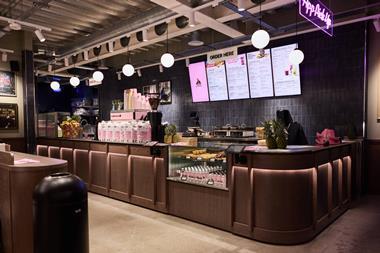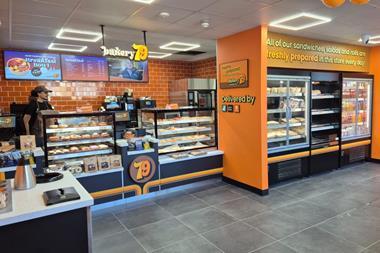Combined sales growth at Lidl and Aldi is at its lowest level in five years – while Tesco is continuing to increase its share of the grocery market.
With Aldi sales revenue up 11.3% and Lidl’s up 5.2%, the combined figure across the two discounters is the lowest since the end of 2011, according to Nielsen data for the 12 weeks ending 5 November 2016.
But despite the slowdown, the discounters’ growth is continuing to outpace the 1.4% rate across the overall UK grocery market.
“It’s inevitable that a time would come when the discounters experienced a slowing growth rate,” said Nielsen UK head of retailer and business insight Mike Watkins, adding that three factors had combined to cause this:
- Growth rates a year ago were high, due to a period of new store openings, and it is harder to maintain growth against that
- The supermarkets have had more time to alter strategies to fend off the discounters
- There has been a return of sustainable growth in the volume of items people are buying, helped by industry-wide price cuts, so one of the discounters’ USPs is less pronounced in shoppers’ minds.
Watkins added that the impact of Brexit wasn’t expected to hit consumer spending until next year.
Nielsen data showed the four weeks ending 5 November was the fourth consecutive month of growth for the UK’s leading supermarkets, with value up 2.7% year on year and volume up 1.9%.
“This suggests this Christmas will see an improvement for the supermarkets over last Christmas when sales were flat,” said Watkins.
Nielsen grocery sales data
According to data from another retail analyst firm, Kantar Worldpanel, Tesco grew at its fastest rate in three years in the 12-week period ending 6 November.
“Tesco’s 2.2% growth is a considerable improvement on the numbers it was delivering this time last year - and indeed in 2014,” said Kantar Worldpanel retail and consumer insight head Fraser McKevitt.
Although Tesco’s branded sales increased over the period, most of its gains had come from own-label products at the low and premium end of the price spectrum.
“Tesco’s Farm Brands continue to benefit from sales growth in fruit and vegetables, while the premium Tesco Finest range has grown by 6% in the past 12 weeks, notably in crisps, fresh meat and chilled convenience,” said McKevitt, adding that much of Tesco’s growth has come from more affluent shoppers returning to the store.
Asda benefited from increased sales of its premium own-label lines, with the retailer’s rate of decline slowing slightly to 5.0%. Morrisons also saw a boost in premium own-label thanks to its ‘The Best’ line, though total sales fell by 2.4% in line with the reduction in its store estate.
Iceland’s sales grew 8.3% this period, well ahead of the overall industry and increasing the retailer’s market share by 0.2 percentage points to 2.1%. Much of Iceland’s growth is from its chilled and ambient lines, said McKevitt, although frozen food successes included fish, ready meals and its tie-ins with Slimming World and Pizza Express.
































No comments yet